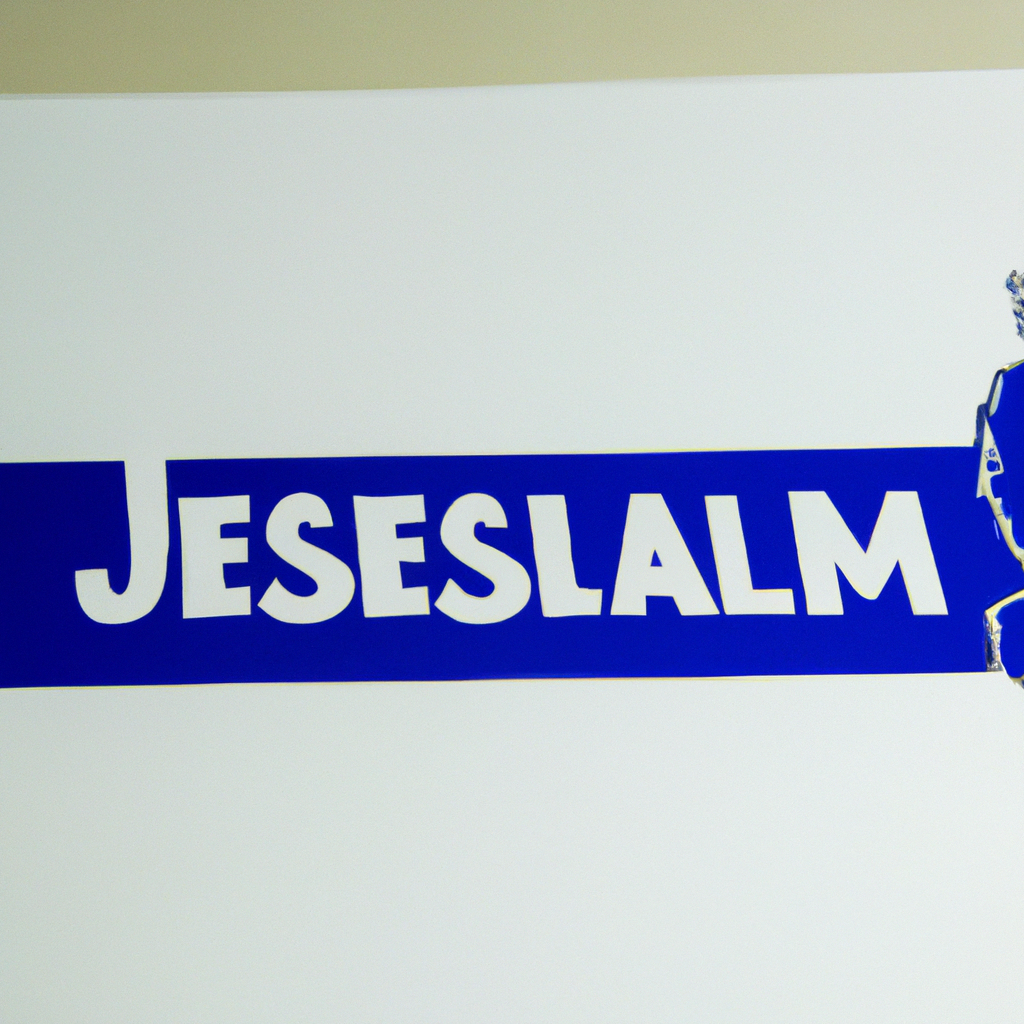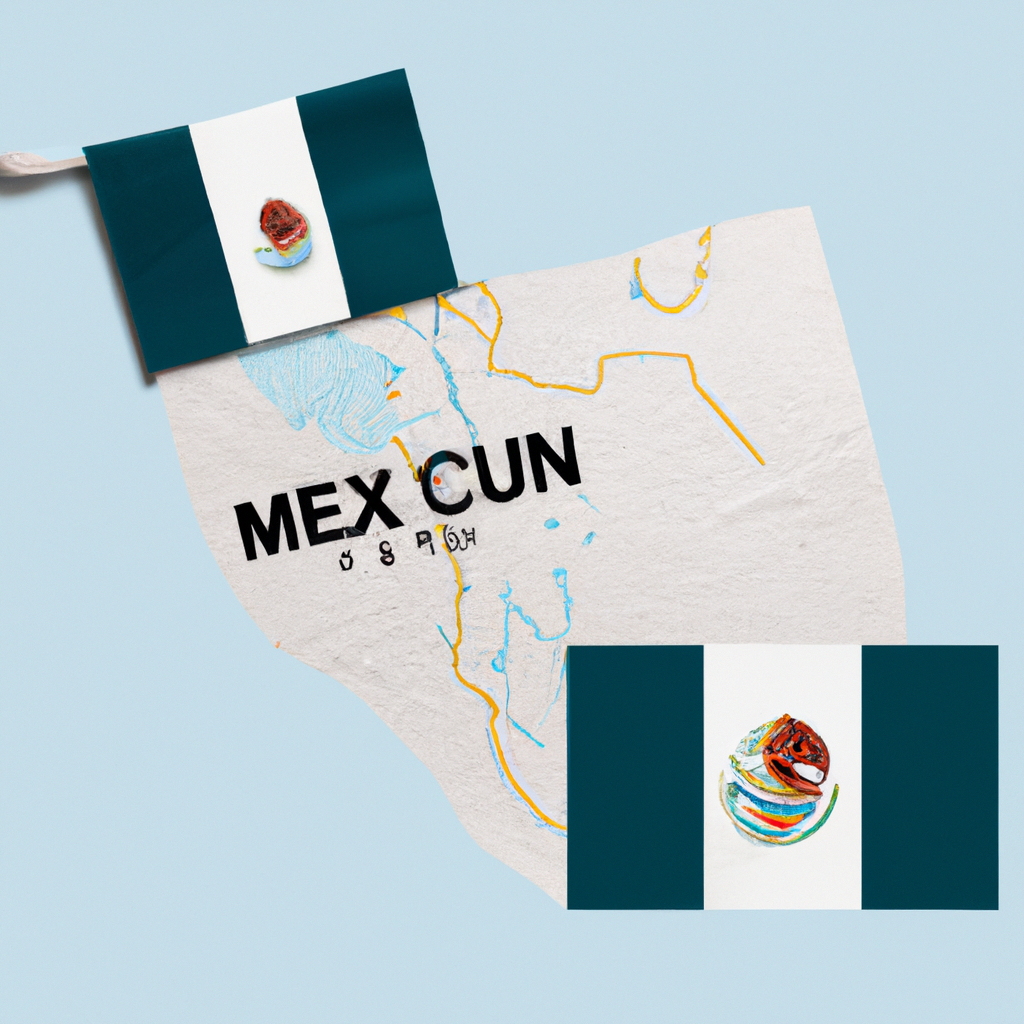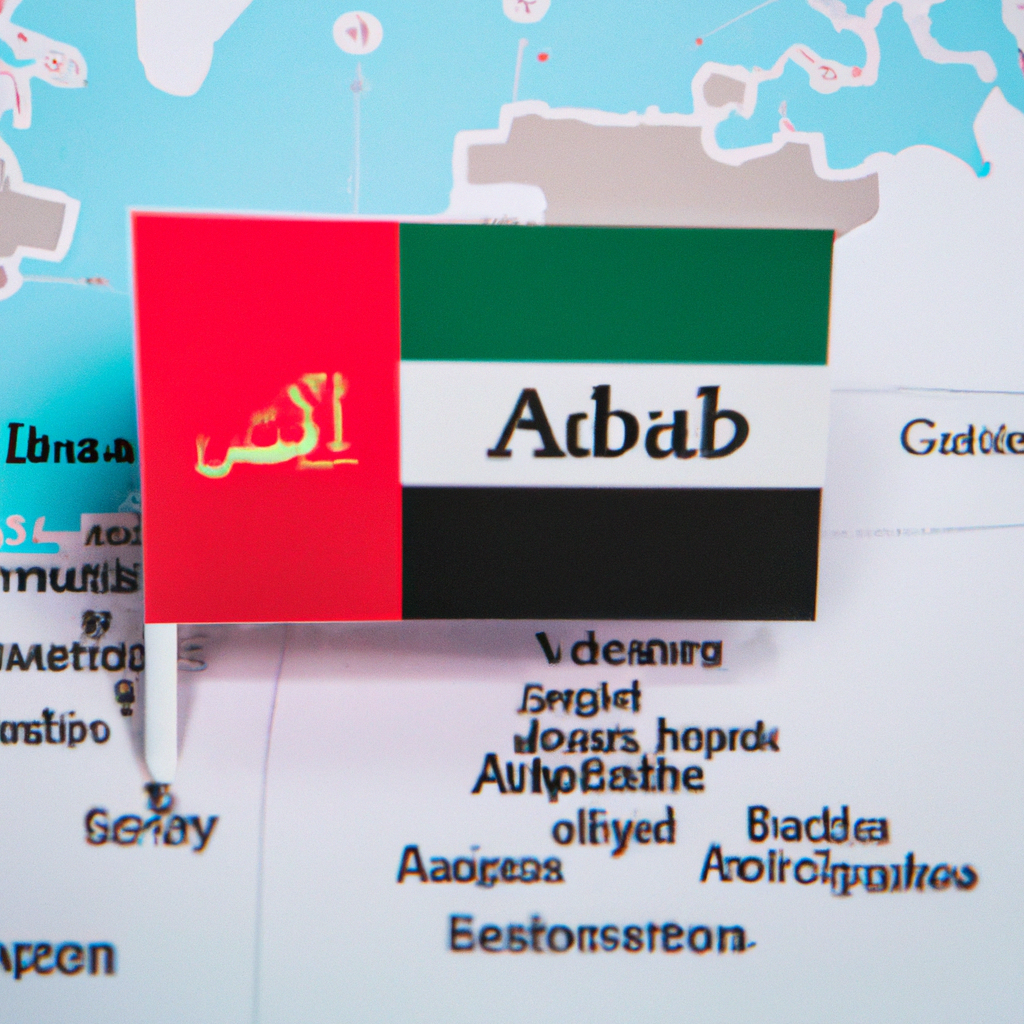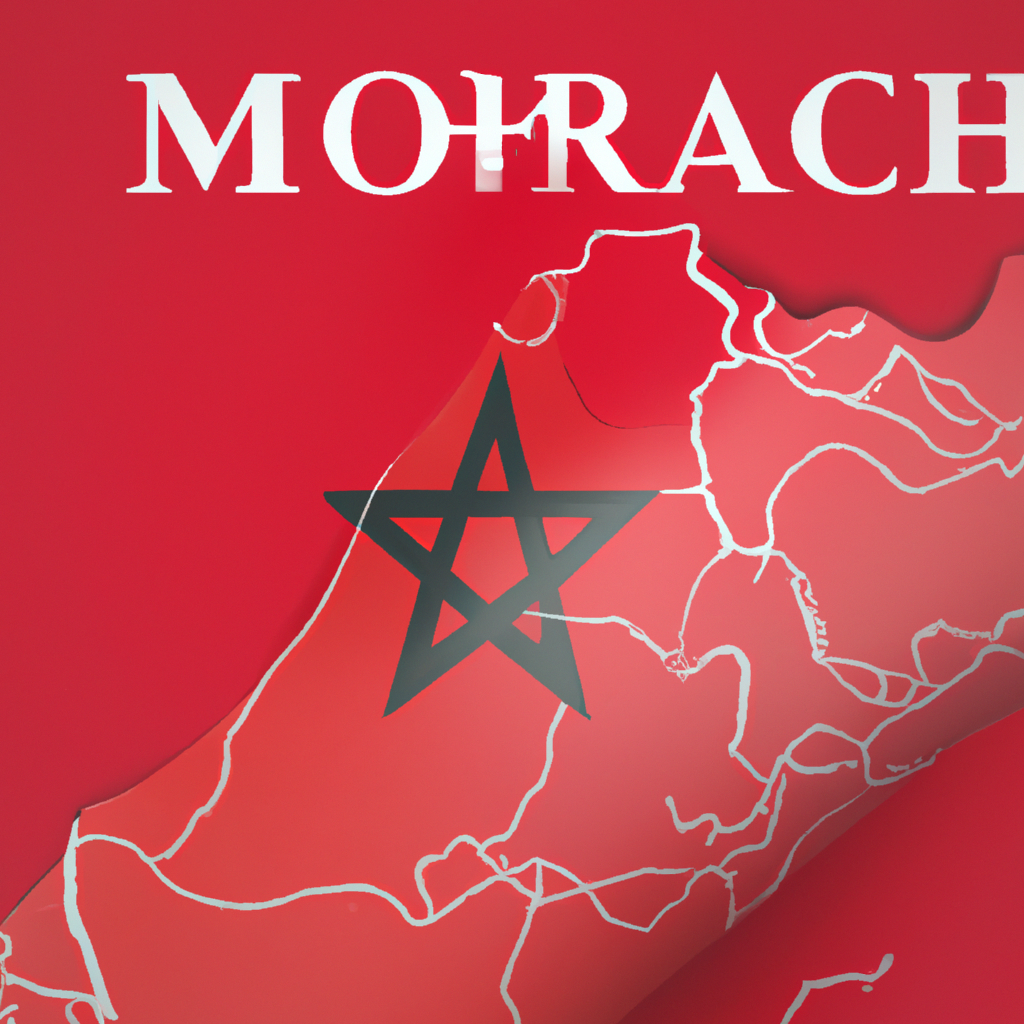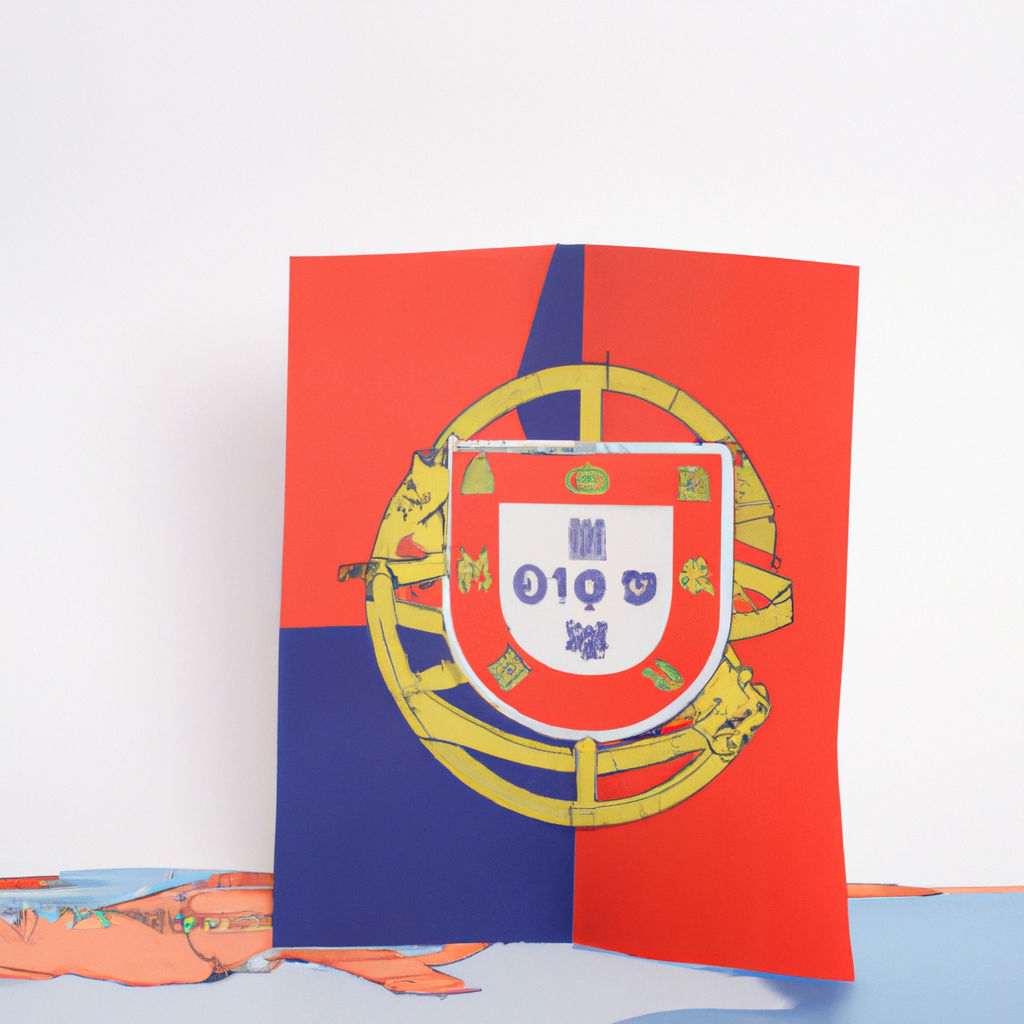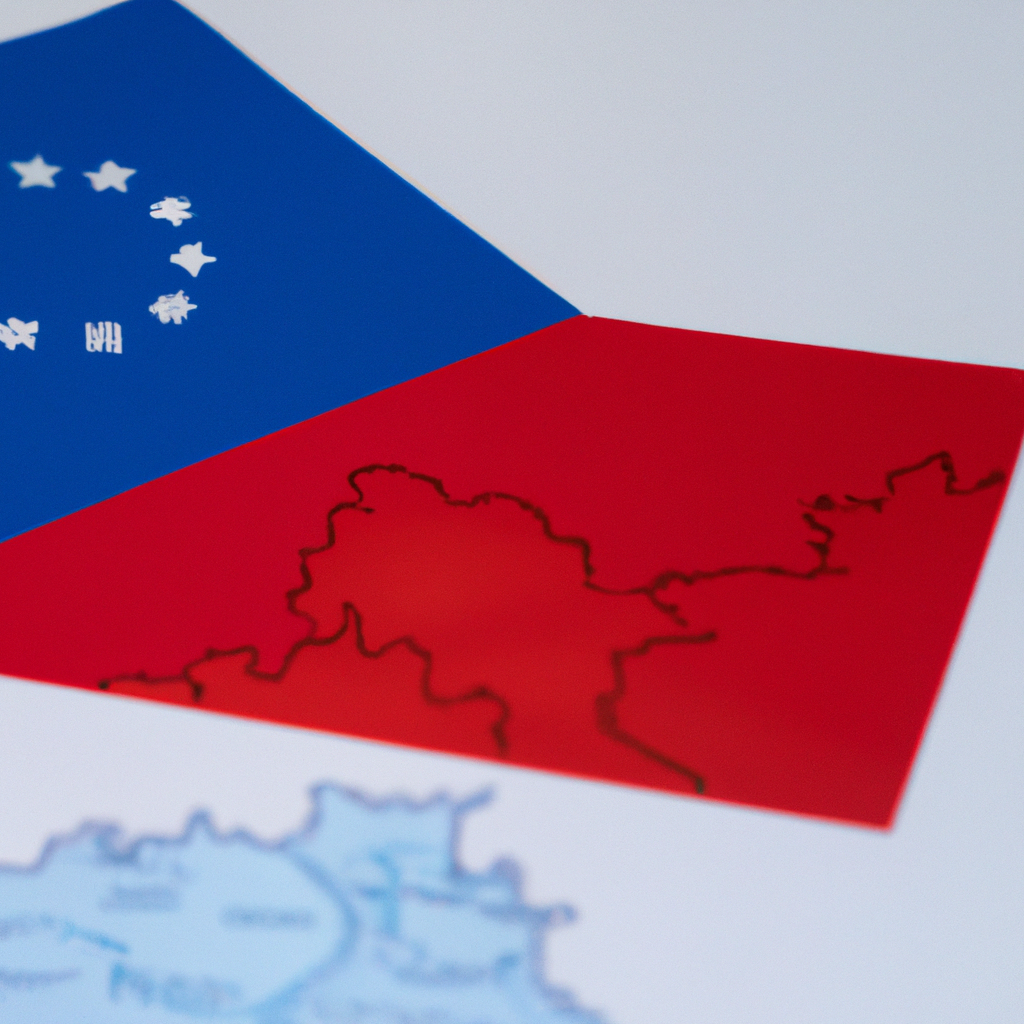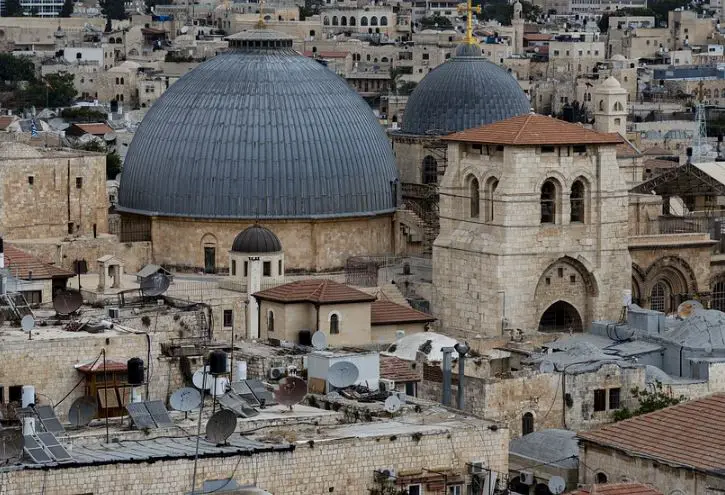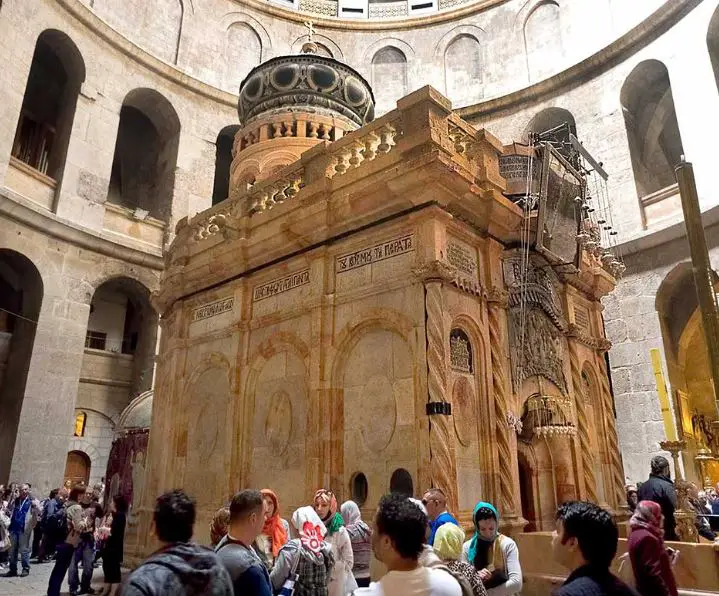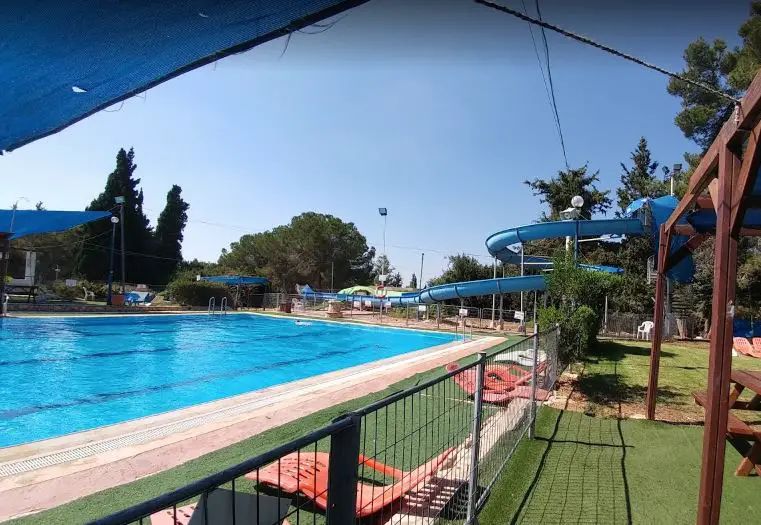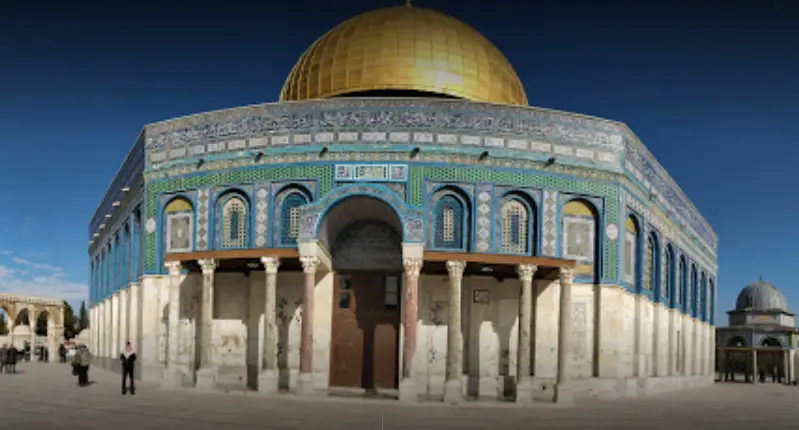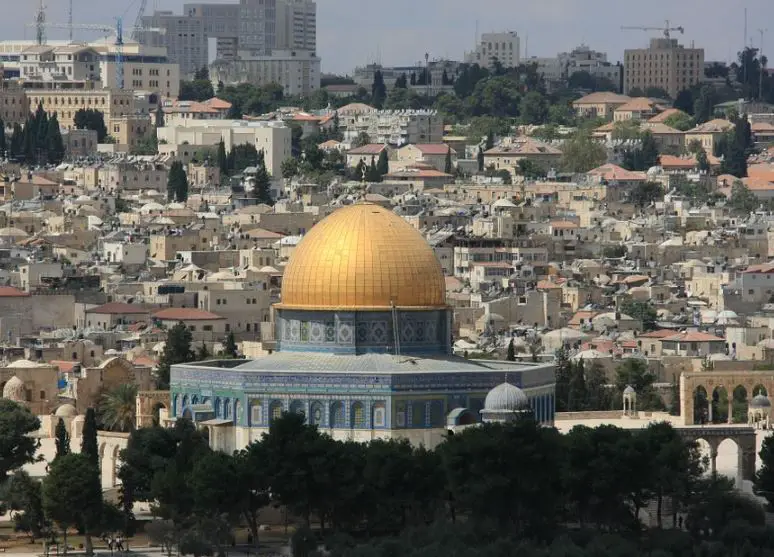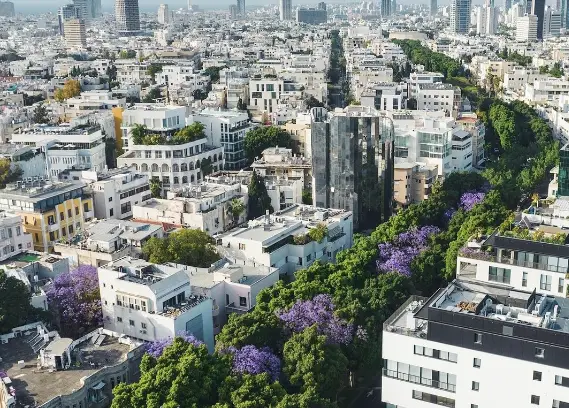Jerusalem, Israel: Interesting Facts,History, Things to do,Why to Visit
Post ByAdequate Travel
Israel is a small country located in the Middle East, bordered by Lebanon to the north, Syria to the northeast, Jordan to the east, and Egypt to the southwest. It has a population of approximately 9 million people, with Jerusalem as its capital. Israel has a diverse and vibrant society, comprised of Jews, Arabs, and other minority groups. Its economy is considered highly developed and is known for its advanced technology and innovation. Israel is also known for its conflicts with neighboring Arab countries, particularly the ongoing Israeli-Palestinian conflict. The country has a parliamentary system of government and is a strong ally of the United States.Uncover the best israel attractions that will leave you awe-inspired and wanting more.
Interesting facts
History of Israel
Israel has a rich and complex history dating back thousands of years. Below are some interesting facts about the history of Israel:
Ancient Israel
- Israel is often referred to as the "Promised Land" due to its significance in the Bible. It is the ancestral homeland of the Jewish people and was promised to them by God according to the Hebrew Bible.
- The Kingdom of Israel was established around 1000 BCE under King Saul, and later ruled by famous kings such as King David and King Solomon.- The kingdom split into two separate entities during the 10th century BCE, known as the Kingdom of Israel (northern) and the Kingdom of Judah (southern). They were later conquered by foreign powers, leading to the dispersal of Jewish population throughout the region.Zionism and Modern Israel
- The modern Zionist movement, which aimed to establish a Jewish homeland in Palestine, gained momentum in the late 19th century.
- The Balfour Declaration of 1917, issued by the British government, expressed support for the establishment of a Jewish homeland in Palestine.- The United Nations approved the partition plan in 1947, leading to the creation of the State of Israel on May 14, 1948.- Israel has since become a thriving democracy and a technological hub, known for its advancements in fields such as cybersecurity, agriculture, and medical research.Geography and Culture
- Israel is located in the Middle East, bordered by Lebanon to the north, Syria to the northeast, Jordan to the east, and Egypt to the southwest.
- It has diverse landscapes, including the Dead Sea (the lowest point on Earth), the Sea of Galilee, and the Mediterranean coastline.- Israel is a melting pot of various cultures, religions, and languages. It is home to Jews, Arabs, Christians, Muslims, Druze, and other minority groups. Hebrew and Arabic are the official languages.- Jerusalem, one of the oldest cities in the world, holds immense religious significance for Judaism, Christianity, and Islam.Conflict and Peace Efforts
- Israel has faced numerous conflicts since its establishment, including the Arab-Israeli wars, the Palestinian-Israeli conflict, and tensions with neighboring countries.
- The Oslo Accords of 1993 aimed to establish peace between Israel and the Palestinians, but an ultimate resolution has yet to be achieved.- Israel has signed peace agreements with Egypt in 1979 and Jordan in 1994, improving regional stability.- Efforts towards peaceful coexistence continue through various diplomatic initiatives and negotiations.It is important to note that the history and politics surrounding Israel can be highly sensitive and complex. These facts provide a brief overview, but further research is encouraged to gain a more comprehensive understanding.From museums to parks,israel tourist attractions offer something for everyone, making it a versatile destination for all type of tourists.History of Israel
Israel is a country located in the Middle East along the eastern shore of the Mediterranean Sea. It has a rich and complex history that spans thousands of years and is deeply intertwined with various religious, cultural, and political developments. Here is a detailed overview of the history of Israel, highlighting key points and events:Ancient Israel:
- The region known as Israel has been inhabited since prehistoric times, with evidence of human presence dating back to the Paleolithic era.- In the 13th century BCE, the Israelites, led by Moses, escaped from slavery in Egypt and settled in Canaan, the Promised Land.- Under the rule of Kings Saul, David, and Solomon, Israel reached its peak in terms of territorial expansion and political stability.- The construction of the First Temple in Jerusalem by King Solomon in the 10th century BCE was a significant religious and cultural achievement for the Israelites.Exile and Diaspora:
- In 586 BCE, the Babylonians conquered Jerusalem and destroyed the First Temple, leading to the exile of many Israelites to Babylonia.- After the Babylonian Empire fell to the Persians in 539 BCE, the Israelites were allowed to return to their land and rebuild the Temple.- However, the region remained under foreign control, with successive empires such as the Persians, Greeks, and Romans asserting their authority.Roman Rule and Jewish Revolts:
- In 63 BCE, the Roman Empire conquered the region of Judea (which included Jerusalem and the surrounding areas), and Israel became part of the Roman province.- The Romans' rule was resented by many Jews, leading to a series of revolts, most notably the First Jewish-Roman War (66-73 CE) and the Bar Kokhba Revolt (132-136 CE).- The Roman response to the revolts was brutal, resulting in the destruction of the Second Temple in 70 CE and the dispersion of the Jewish population across the Roman Empire.Modern State of Israel:
- Throughout history, Jews maintained a presence in the land of Israel, but large-scale Jewish immigration began in the late 19th century, motivated by Zionism, a movement advocating for the establishment of a Jewish homeland.- Following World War I, the League of Nations granted Britain a mandate to administer Palestine (including modern-day Israel) and facilitate Jewish immigration.- Jewish and Arab tensions increased in the region, culminating in the 1947 UN Partition Plan, which proposed dividing Palestine into separate Jewish and Arab states.- On May 14, 1948, the State of Israel was officially declared, and neighboring Arab countries immediately launched a military campaign against it.These are just some of the key points in the long and intricate history of Israel, which continues to shape the country's identity and ongoing geopolitical challenges.Exploring the rich heritage of historical sites in israel is a journey through time and culture.Famous Things in Israel
1. Dead Sea:
Located between Jordan and Israel, the Dead Sea is one of the most famous landmarks in Israel. Known for its high salt concentration, the Dead Sea allows visitors to effortlessly float on its surface. The mineral-rich mud and unique healing properties of the water attract tourists from around the world.2. Western Wall:
The Western Wall, also known as the Wailing Wall, is a significant religious site in Jerusalem. It is the only remaining part of the Second Temple and holds great importance for Jewish people. Pilgrims and locals gather here to pray and place small notes with prayers in the crevices of the wall.3. Masada:
Masada is an ancient fortress located on a rocky plateau in the Judaean Desert. It serves as a symbol of Jewish heroism and resistance against Roman rule. The site offers breathtaking views of the surrounding desert and attracts visitors who are interested in history and archaeology.4. Tel Aviv Beaches:
Tel Aviv is known for its beautiful sandy beaches along the Mediterranean coast. These beaches offer various amenities and activities like beach volleyball, waterfront bars, and buzzing nightlife. Tourists and locals alike flock to these beaches for relaxation and sunbathing.5. Yad Vashem:
Yad Vashem is the official memorial to the victims of the Holocaust located in Jerusalem. It is a deeply emotional and educational site that pays tribute to the six million Jews who perished during the Holocaust. It includes a museum, commemorative monuments, and an archive documenting the stories of survivors.Discover some unique facts about israel that will leave you amaze and intrigue.Culture of Israel
Israel is a country with a diverse and vibrant culture influenced by its ancient history, Jewish heritage, and the various immigrant populations that have settled there over the years.Jewish Heritage
Israel is a predominantly Jewish state, and Judaism plays a significant role in shaping its culture. Jewish traditions, customs, and religious practices are observed throughout the country, from the weekly Shabbat (Sabbath) observance to Jewish holidays such as Passover, Rosh Hashanah, and Hanukkah.
Example: The celebration of Hanukkah, also known as the Festival of Lights, involves the lighting of the menorah, playing dreidel games, and enjoying traditional foods like latkes (potato pancakes) and sufganiyot (jelly-filled doughnuts).
Modern Israeli Culture
Israel is also known for its thriving modern culture, which is a blend of various influences from different immigrant communities. This includes cuisine, music, dance, fashion, and art.
Example: Israeli cuisine, often referred to as "Mediterranean fusion," incorporates elements from Middle Eastern, North African, and European culinary traditions. Dishes such as hummus, falafel, shawarma, and Israeli salad have gained international popularity.
Diversity and Immigrant Influences
Israel is home to people from diverse backgrounds, including Jews, Arabs, Christians, Druze, and various other ethnic and religious groups. Each community contributes to the cultural fabric of the country, bringing their own traditions, languages, and customs.
Example: The Arab population in Israel has its distinct cultural practices, including Arab music, dance, and cuisine. Traditional dabke dancing and the sound of the oud can often be experienced during cultural events.
Nature and Outdoor Activities
The natural landscape of Israel also plays a significant role in shaping the culture. The country offers diverse terrain, from lush green mountains to the Dead Sea, providing opportunities for outdoor activities like hiking, swimming, and exploring archaeological sites.
Example: The annual Jerusalem March brings together people from different cultures and religions to walk together and celebrate unity, promoting coexistence while appreciating the scenic views of the city.
Arts and Innovation
Israel has a thriving arts scene, including theater, literature, and film. The country also prides itself on being at the forefront of technological innovation, with numerous startups and research institutions.
Example: Israeli cinema has gained recognition in international film festivals, with directors such as Ari Folman and Nadav Lapid receiving critical acclaim for their thought-provoking work.
In conclusion, the culture of Israel is a rich and diverse tapestry, encompassing Jewish traditions, modern influences, immigrant communities, outdoor activities, arts, and innovation. The country's unique cultural blend allows for a vibrant and dynamic society, where ancient traditions coexist with contemporary practices.Immerse yourself in the local culture by exploring israel's top-rated tourist attractions.Cuisine of Israel
Israel is a country known for its diverse and flavorful cuisine, which is heavily influenced by the culinary traditions of Jewish, Middle Eastern, Mediterranean, and North African cultures. The combination of different cultural influences has resulted in a unique and vibrant food scene in Israel.Characteristics of Israeli Cuisine:
1.Mediterranean Influence:
Israeli cuisine draws heavily from Mediterranean flavors and ingredients, such as olive oil, fresh vegetables, herbs, and fish. The use of these ingredients contributes to the fresh and healthy nature of Israeli dishes.Example - The Israeli salad, consisting of diced cucumbers, tomatoes, parsley, and lemon juice, is a popular dish that reflects the Mediterranean influence.2.Middle Eastern Spices:
Middle Eastern spices, such as cumin, turmeric, sumac, and za'atar, are commonly used in Israeli cooking. These spices add depth of flavor and give a distinct taste to many dishes.Example - Shawarma, a savory meat dish marinated in flavorful spices and served in a pita bread, is a well-known Middle Eastern influenced dish in Israel.3.Jewish Traditions:
Jewish dietary laws and traditions have had a significant impact on Israeli cuisine. Kosher food, prepared according to Jewish dietary laws, is widely available in Israel.Example - Challah, a braided bread typically eaten on Jewish holidays, is a traditional Jewish dish loved by many in Israel.4.Street Food Culture:
Israel has a vibrant street food scene, with numerous food stalls and markets offering a wide range of delicious and affordable options. Street food favorites include falafel, shawarma, hummus, and sabich (a sandwich filled with fried eggplant, hard-boiled egg, and various condiments).Example - The bustling streets of Tel Aviv are filled with street vendors selling delectable falafel sandwiches, making it a popular street food choice among locals and tourists alike.5.Blend of Cultures:
Due to the country's diverse population and immigrant communities, Israeli cuisine incorporates influences from various cultures, including Moroccan, Yemenite, Ethiopian, and Persian. This blend of flavors and cooking techniques contributes to the rich and diverse food options available in Israel.Example - Malawach, a flaky Yemeni bread served with different toppings such as eggs, vegetables, or cheese, is a popular dish that reflects the Yemenite influence in Israeli cuisine.In conclusion, Israeli cuisine is a fascinating blend of flavors and culinary traditions from different cultures. The use of fresh ingredients, bold spices, and a focus on diverse street food contribute to the vibrant and unique food scene in Israel.israel tourist attractions offer a diverse range of experiences for every traveler.1. Visit the Western Wall
The Western Wall, also known as the Wailing Wall, is one of the holiest sites in Judaism. It is located in the Old City of Jerusalem and is a place of pilgrimage and prayer for Jews from all over the world. The wall is believed to be the last remnant of the Second Temple and holds great historical and religious significance. Visitors can write prayers on small pieces of paper and place them in the cracks of the wall.
- Take part in a guided tour to learn more about the history and significance of the Western Wall.
- Experience the atmosphere during religious celebrations and observe Jewish customs and traditions.
- Spend time reflecting and praying at this sacred site.
2. Explore the Old City of Jerusalem
The Old City of Jerusalem is a UNESCO World Heritage site and is divided into four quarters: the Jewish Quarter, the Muslim Quarter, the Christian Quarter, and the Armenian Quarter. Each quarter has its own unique history, architecture, and religious sites.
- Visit the Church of the Holy Sepulchre, which is believed to be the site of Jesus' crucifixion and burial.
- Explore the narrow alleyways and bustling markets of the Muslim Quarter.
- Walk along the Via Dolorosa, the path Jesus is said to have taken on his way to crucifixion.
- Enter the Western Wall Tunnel to see underground sections of the Western Wall.
3. Float in the Dead Sea
The Dead Sea is known for its high salt content, which allows swimmers to effortlessly float on its surface. It is the lowest point on Earth and offers stunning views of the surrounding desert landscape.
- Apply the mineral-rich mud found there, known for its skin benefits.
- Enjoy a unique and relaxing experience by floating in the salty waters.
- Take in the breathtaking views of the mountains and salt formations.
4. Visit Masada
Masada is an ancient fortress located atop a mountain plateau overlooking the Dead Sea. It holds great historical significance as the site of the last stand of Jewish rebels against Roman rule during the First Jewish-Roman War.
- Explore the ruins of the fortress and learn about its defense systems and water systems.
- Ride the cable car or hike up the Snake Path to reach the top of Masada.
- Take in the panoramic views of the Dead Sea and the surrounding desert.
5. Discover Tel Aviv
Tel Aviv is a vibrant and modern city known for its beautiful beaches, buzzing nightlife, and thriving culinary scene. It offers a stark contrast to the ancient sites found in other parts of Israel.
- Relax on the sandy beaches and enjoy water sports activities.
- Stroll along the bustling promenade of Rothschild Boulevard and explore the vibrant neighborhoods.
- Visit the Tel Aviv Museum of Art to admire contemporary Israeli and international artworks.
- Experience the city's lively nightlife by exploring the numerous bars, clubs, and live music venues.
When planning your trip to israel, be sure to include the best things to do in israel, which encompass a wide range of cultural experiences.